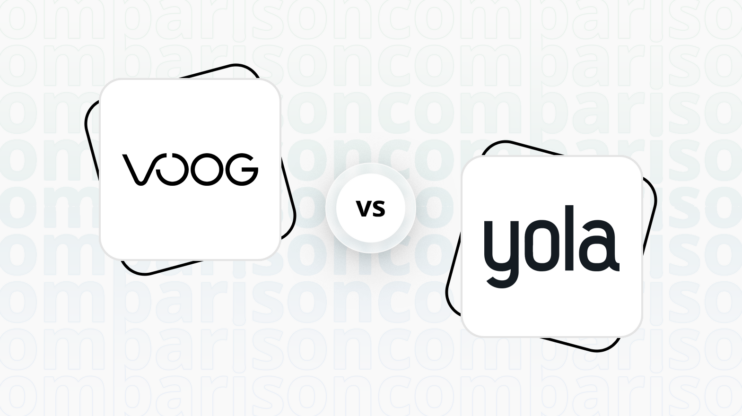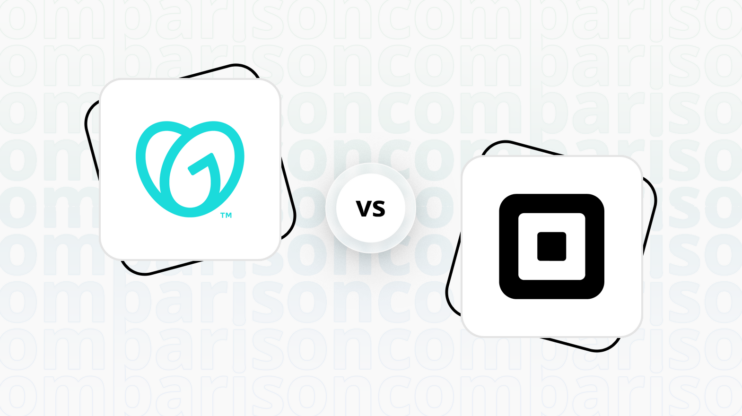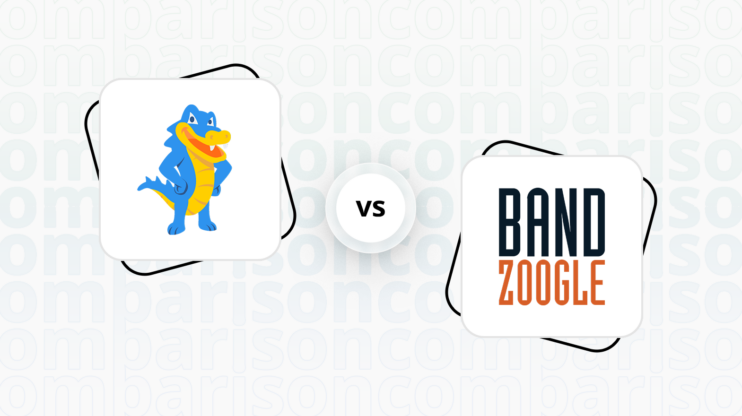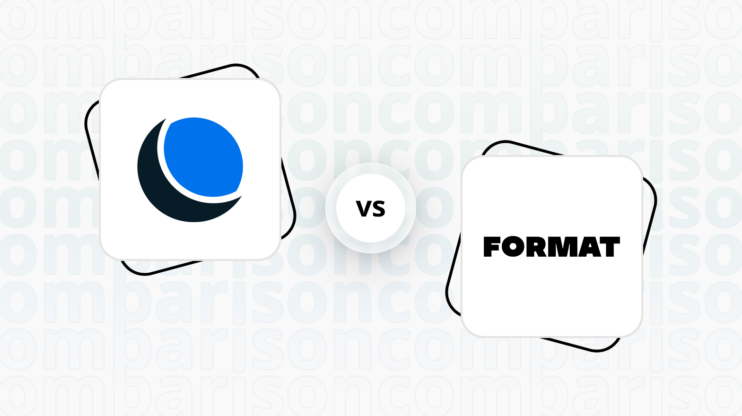Final verdict
Weebly and SubHub both offer unique strengths, but they cater to different types of users and website needs.
-
Weebly (Overall Grade: 7.3/10)
is a versatile website builder that excels in ease of use, design functionalities, and comprehensive marketing tools. It is ideal for users looking for a user-friendly platform with a wide range of templates and robust ecommerce features. Weebly’s strong customer support and security measures make it a reliable choice for small businesses and personal websites. When comparing Weebly vs SubHub, Weebly stands out for its broader appeal and flexibility. -
SubHub (Overall Grade: 5.6/10)
is specifically designed for creating and managing membership sites. It offers tailored tools for content creators and entrepreneurs aiming to build a community and monetize their content. While it may not have the same level of design flexibility or ecommerce capabilities as Weebly, SubHub’s focus on membership management and ease of use for subscription models makes it a strong contender for niche markets. In the Weebly vs SubHub comparison, SubHub is the go-to platform for membership-based businesses.

|

|
|
|---|---|---|
|
Design functionalities & templates |
7.4 |
6.8 |
|
Ease of use |
8.1 |
7.7 |
|
Ecommerce |
7.1 |
5.9 |
|
Website Editors |
7.6 |
6.9 |
|
Product testing options |
8.3 |
7.0 |
|
Price |
8.4 |
6.8 |
|
Hosting quality |
7.7 |
5.5 |
|
Website speed optimization |
7.9 |
5.6 |
|
Plugins and integrations |
7.5 |
5.7 |
|
Marketing features |
7.1 |
5.7 |
|
Customer support |
7.3 |
6.3 |
|
Security |
8.3 |
4.0 |
|
AI capabilities |
1.8 |
0 |
|
User Management |
6.5 |
5.2 |
Best for ecommerce
 7.1
7.1
 5.9
5.9
Verdict
: Weebly is better suited for traditional ecommerce needs, offering a comprehensive set of features for online stores. SubHub, while capable, is more specialized for membership-based ecommerce.
-
Weebly
: Weebly excels in providing a user-friendly platform with a variety of ecommerce features, including unlimited product listings, secure checkout, and customizable shipping options. It is ideal for users looking to set up a traditional online store with ease. However, when comparing Weebly vs SubHub, Weebly’s broader ecommerce capabilities make it a more versatile choice for general ecommerce needs. -
SubHub
: SubHub is tailored for membership sites, offering tools for managing subscriptions and exclusive content. While it supports ecommerce functionalities like physical and digital product listings, it is more specialized and may not offer the same level of flexibility and features as Weebly for traditional online stores.
Best for informational & business websites
 7.9
7.9
 7.2
7.2
Verdict
: Weebly is the better choice for creating informational business websites due to its user-friendly interface, extensive design functionalities, and robust support and security features. SubHub, while strong in membership site creation, falls short in comparison for general informational business needs.
-
Weebly
: Weebly excels with its drag-and-drop interface, making it accessible for both beginners and experienced users. It offers a variety of high-quality, customizable templates, SEO tools, and seamless integration with third-party apps. With a score of 7.9, Weebly is well-suited for creating visually appealing and functional informational business websites. -
SubHub
: SubHub is tailored for membership sites, offering tools for content creators and entrepreneurs to build and monetize their communities. While it provides customizable templates and ease of use for membership-based businesses, its score of 7.2 indicates it may not be as versatile for general informational business websites compared to Weebly. When considering Weebly vs SubHub, Weebly’s broader range of features makes it the preferred choice for informational sites.
Detailed comparison
Design functionalities & templates
Design FunctionalitiesRepresents how well each platform allows for creative design and customization of websites.Score Components:
- Template Variety (30%): Range and quality of design templates.
- Customization (30%): Flexibility and options for design alterations.
- User Interface (20%): Ease and intuitiveness of the design process.
- Responsiveness (10%): Adaptability to different devices and screen sizes.
- Innovation (10%): Unique design features and tools.
 7.4
7.4
 6.8
6.8
🏆
Winner: Weebly.
If you’re looking for a platform that offers more creative control and a wide array of design features, Weebly is the preferred choice.
Weebly offers a curated selection of templates, numbering in the low hundreds, which is fewer than some competitors. However, the emphasis is on high-quality, professionally designed templates covering various categories such as business, ecommerce, portfolio, blog, personal, and events. Weebly’s templates are praised for their clean, modern, and responsive design, with easy customization options for colors, fonts, layout, images, and content.
Compared to Weebly, SubHub website builder offers a variety of customizable membership website templates designed to cater to different needs and themes, including fitness, yoga, relationship, ministry, learning, craft, wellness, business, and modern living, among others. There are 14 specifically themed templates available, each designed to help users jump-start the design of their membership website homepages. These templates are fully customizable, allowing users to modify layouts, add or remove sections, and tailor content to fit their brand, ensuring flexibility in the design process.
Get a head start on website creation with AI
Create a custom website tailored to your business needs 10X faster with 10Web AI Website Builder!
Ease of use
Ease of useReflects the platform’s overall user-friendliness.Score
Components:
- Learning curve (40%): Quickness and ease of getting started.
- Interface design (30%): Simplicity and intuitiveness of layout.
- User guidance (20%): Quality of tutorials and support.
- Flexibility (10%): Adaptability to various user skills.
 8.1
8.1
 7.7
7.7
🏆 Winner: Weebly
. Scoring 8.1, Weebly stands out for its user-friendly interface, making it exceptionally easy for both beginners and experienced users to create and manage their websites. SubHub, with a score of 7.7, offers a robust platform but is specifically designed for building membership websites and online courses. If ease of use is a priority, Weebly is the clear winner in this category.
Learning Resources
🏆 Winner: Weebly
. While both platforms offer solid learning resources, Weebly goes a step further with its wide array of detailed tutorials and active community forums, making it easier for users to learn and adapt.
For ecommerce
EcommerceMeasures the platform’s effectiveness in supporting online business activities.Score Components:
- Ecommerce themes and templates (20%): Variety and design of templates.
- Product management (25%): Ease of managing and organizing products.
- Payment options (25%): Variety and convenience of payment methods.
- Ecommerce features (20%): Features for managing an ecommerce store.
- Integration (10%): Compatibility with external e-commerce tools and services.
 7.1
7.1
 5.9
5.9
Weebly and SubHub both offer ecommerce capabilities, but they cater to different needs. Weebly is a more traditional ecommerce platform, offering unlimited product listings, secure checkout, customizable shipping options, and discount promotions. SubHub, on the other hand, is designed specifically for creating and managing membership sites, supporting sales of physical goods, digital products, and pay-per-view content.

|

|
|
|---|---|---|
|
Ecommerce themes and templates |
6.5 |
3.0 |
|
Product page customization |
6.8 |
6.5 |
|
Payment processing and commissions |
7.0 |
7.0 |
|
POS capabilities |
6.0 |
0.0 |
|
Payment gateways |
7.5 |
6.0 |
|
Product numbers |
7.0 |
5.0 |
|
Additional ecommerce features |
6.7 |
4.5 |
Weebly ecommerce features:
- Unlimited products
- Inventory management
- Product reviews and ratings (Paid plans)
- Secure checkout
- Shipping options
- Abandoned cart recovery (Paid plans)
- Basic analytics
- SEO tools
- Marketing integrations (Paid plans)
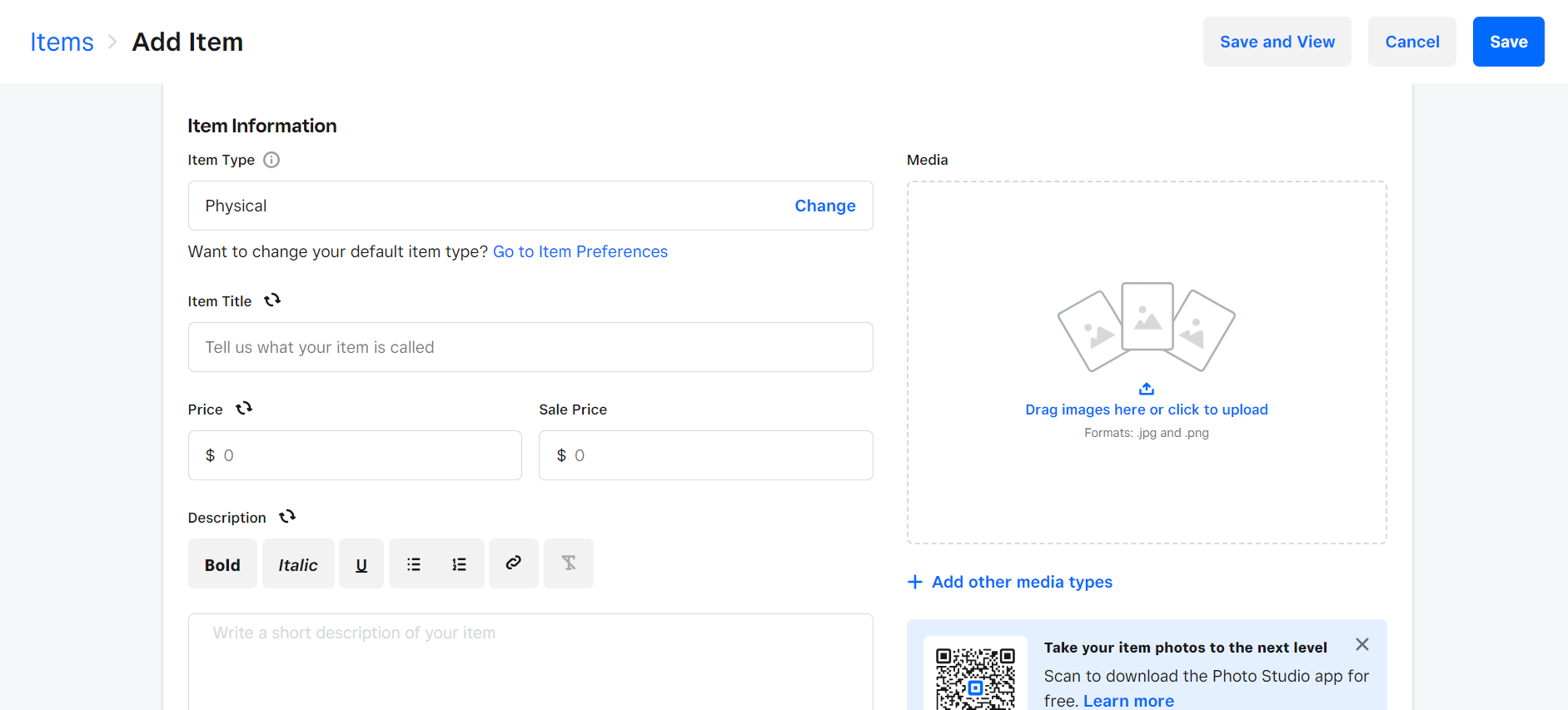
SubHub ecommerce features:
- Paypal and Stripe integration
- Physical and Digital product listings
- Pay-per view products
Ecommerce themes & templates
Weebly provides ecommerce-specific themes with a decent range of styles, offering built-in features like product galleries and optimized checkout flows. While customization options include adjustments to colors and fonts, limitations exist compared to dedicated platforms, with a smaller theme selection and less design flexibility, potentially requiring additional costs for premium themes with advanced features. SubHub, on the other hand, does not have ecommerce specific templates.
Product page customization
Weebly allows a decent level of product page customization through its user-friendly interface, offering options for layout, colors, fonts, backgrounds, and content. While not as extensive as dedicated ecommerce platforms, it enables personalized and visually appealing product pages. Advanced customization, including custom CSS and app integrations, is available with paid plans, but limitations exist in design flexibility compared to dedicated platforms. SubHub offers a range of product page customization options, allowing for the addition of physical items, digital downloads, and pay-per-view content. Features include the ability to manage product variants, upload images, and set visibility preferences. Users can also implement SEO strategies through meta tags and manage tax settings. Additional functionalities include member-specific discounts, image carousels, and individualized shipping costs.
Payment processing
When it comes to payment processing, Weebly seamlessly integrates with popular payment processors such as Square, Stripe, PayPal, and others, enabling secure and convenient online transactions for your store. Users can choose their preferred gateway, set up payment processing within Weebly’s settings, and benefit from features like secure checkout and, on paid plans, options for recurring payments and international transactions. SubHub supports two main payment gateways: Stripe and PayPal. These integrations allow for secure payment processing for subscriptions and store items using debit or credit cards. The platform itself does not charge commissions on transactions.
Website Editors
Website EditorsEvaluates the platforms’ website building and editing capabilities.Score Components:
- Customization tools (40%): Range and power of editing features.
- Editor usability (30%): User experience within the editor.
- Design flexibility (20%): Freedom in layout and design changes.
- Update and maintenance ease (10%): Simplicity of updating and maintaining the site.
 7.6
7.6
 6.9
6.9
🏆
Winner: Weebly
. Weebly, with a score of 7.6, stands out for its drag-and-drop simplicity, catering to beginners with an intuitive interface and visual editing. The editor features a range of pre-designed templates, customization options, and content management tools, making it accessible for users without coding knowledge. While offering ease of use, it has some limitations in design flexibility and advanced features, with certain functionalities requiring a move to paid plans.
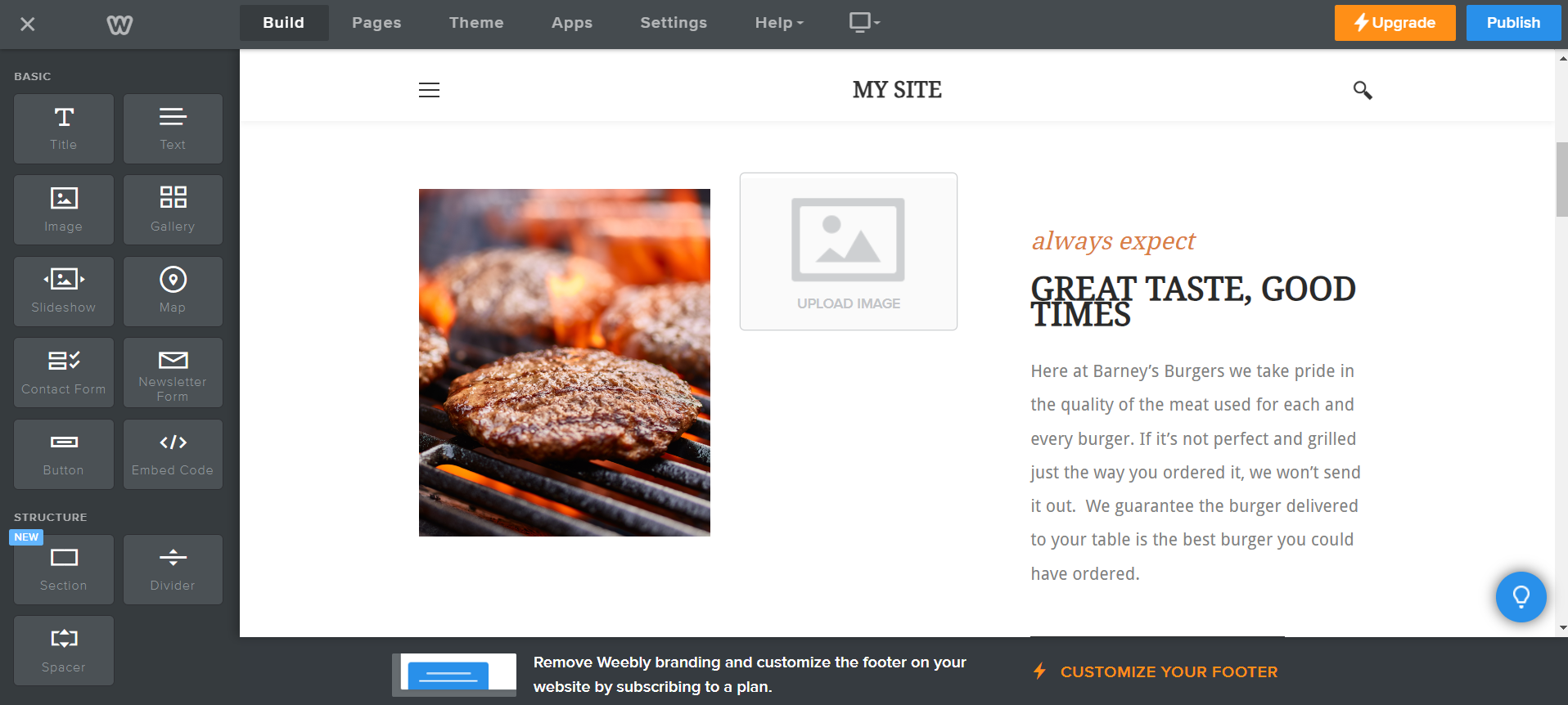
SubHub’s editor, scoring 6.9, is a user-friendly website builder tailored for creating and managing membership sites, catering to content creators and entrepreneurs aiming to monetize their offerings. Its features encompass customizable templates, diverse content publishing options, and flexible subscription plans with seamless integration for recurring revenue through payment processors. Additionally, SubHub supports online course creation, provides marketing tools like landing page builders, and offers detailed analytics for monitoring website metrics.
Mobile editor/app
 8.1
8.1
 4.0
4.0
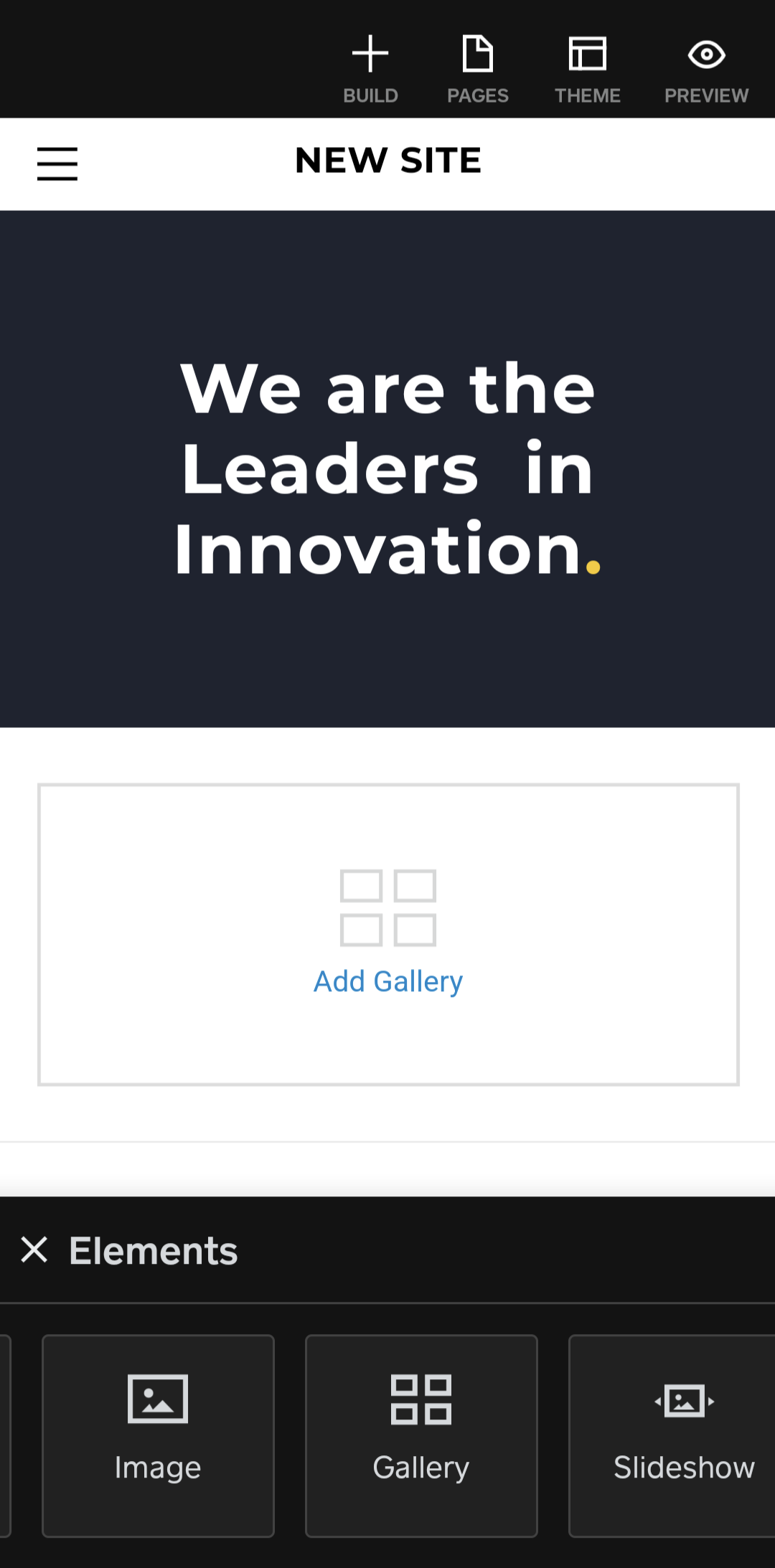
🏆
Winner: Weebly
. Both Weebly and SubHub offer mobile capabilities, but they cater to different needs and skill levels. Weebly’s mobile app allows users to manage and make basic edits to their websites on the go. While it offers features like content management and basic design customization, it has limitations, such as no advanced editing capabilities or extensive design flexibility, making it best suited for quick content updates rather than major design changes.
On the other hand, SubHub does not have a dedicated mobile editor app. Users can manage some content on their website using the mobile browser version, but it’s not possible to change the layout and design of the website on mobile. This lack of a dedicated mobile app and limited mobile editing capabilities give Weebly a clear advantage in this category.
In summary, Weebly receives a higher rating due to its mobile app and the ability to make basic edits on the go, while SubHub is limited by its lack of a dedicated mobile app and limited mobile editing capabilities.
Product testing options
Product Testing OptionsAssesses the options for trying out platform features before commitment.Score Components:
- Trial quality (40%): Extent and usefulness of the trial or free version.
- Feature accessibility (30%): How many features are available to test.
- Trial duration (20%): Length of the trial period.
- Ease of transition (10%): Smoothness of moving from trial to paid plans.
 8.3
8.3
 7.0
7.0
Overall Result
:
Weebly wins
. Weebly scores 8.3, offering a free version and a 30-day money-back guarantee for all paid plans. This allows users to explore all the features of any paid plan and make a decision within the 30-day refund window. SubHub, scoring 7.0, offers a 14-day free trial and a 7-day money-back guarantee, allowing users to test premium features during the free trial.

|

|
|
|---|---|---|
|
Free Plan |
Yes |
No |
|
Trial Duration |
30 days (money-back guarantee) |
14 days |
|
Testing Premium Features |
Yes, within 30-day refund window |
During the free trial |
|
Money-Back Guarantee |
30 days |
7 days |
Price
PriceLooks at the cost-effectiveness and value for money of each platform.Score Components:
- Plan value (40%): What each pricing tier offers.
- Transparency and clarity (30%): Clearness of pricing structures.
- Flexibility of plans (20%): Range of options to suit different budgets.
- Hidden costs (10%): Additional expenses not included in the plan.
 8.4
8.4
 6.8
6.8
Weebly offers a more affordable range of plans compared to SubHub, which is more focused on providing specialized features for membership-based websites.

|

|
|
|---|---|---|
|
Free |
Free ($0/month): Basic template selection, 500MB storage, Weebly ads, limited features. |
No offering at this amount. |
|
$0-$10 |
Personal ($6/month): Custom domain, unlimited storage, ad-free, limited SEO and email marketing tools. Value for price: 6.5 |
No offering at this amount. |
|
$10-$20 |
Professional ($12/month): Advanced design options, blog membership features, advanced SEO tools, form analytics. Value for price: 7.5 |
No offering at this amount. |
|
$25-$50 |
Performance ($26/month): Advanced ecommerce features, lead capture tools, custom code injection, marketing automation. Value for price: 8.5 |
Starter ($47/month): Up to 500 members, 5 GB storage, secure payment processing, course builder, 5 landing pages, e-commerce. Value for price: 6.5 |
|
$90-$100 |
No offering at this amount. |
Pro ($97/month): Up to 2000 members, 50 GB storage, removes SubHub branding, 15 landing pages, along with Starter features. Value for price: 7.5 |
|
$100+ |
No offering at this amount. |
Premium ($147/month): Unlimited members, 200 GB storage, email white labelling, 30 landing pages, plus all Pro features. Value for Price: 8.5 |
location. As a result in rare cases the prices displayed here can differ from the ones you see on their
websites.
Hosting quality
Hosting
qualityExamines the reliability and performance of the hosting solutions.Score Components:
- Uptime (40%): Consistency and reliability of website availability.
- Speed (30%): Loading times and performance.
- Bandwidth and storage (20%): Sufficiency of resources provided.
- Data centers (10%): Quality and distribution of hosting infrastructure.
 7.7
7.7
 5.5
5.5
Winner: Weebly
. Weebly offers a more reliable hosting service with a 99.9% uptime guarantee and unlimited storage and bandwidth on its paid plans. SubHub, on the other hand, does not provide uptime statistics or guarantees and has storage limitations depending on the plan. Although Weebly has been critiqued for slow page loading times, it still offers a more comprehensive hosting service compared to SubHub.

|

|
|
|---|---|---|
|
Do they offer hosting? |
Yes, included in all paid plans |
Yes, included in all paid plans |
|
Data Centers: |
Weebly leverages a global network of data centers to deliver reliable and efficient website hosting. However, they do not publicly disclose, the specific locations of their data centers due to security and technical reasons. |
Subhub does not disclose the locations of its data centers |
|
Type of hosting: |
Shared Hosting, Cloud Based Hosting, Managed Hosting |
Managed Cloud Hosting |
|
Uptime: |
99.9% |
Subhub does not provide uptime statistics or guarantees |
|
Uptime Guarantee: |
Yes, 99.95% |
No |
Website Speed Optimization
Website Speed OptimizationEvaluates optimization of website loading timesScore Components:
- PageSpeed Score (30%): Google’s score indicating performance optimization.
- Loading Time (30%): The average time until a website is fully interactive.
- Mobile Optimization (15%): Optimization effectiveness for mobile devices.
- Resource Optimization (15%): Optimizing images, scripts, and other heavy resources.
- CDN Usage (10%): Use of CDN to enhance speed across geolocations.
 7.9
7.9
 5.6
5.6
🏆 Winner: Weebly
Both Weebly and SubHub have strategies in place for website speed optimization, but Weebly’s comprehensive approach and transparency about their Core Web Vitals improvements give them the edge.

|

|
|
|---|---|---|
|
Key Strategies |
Load balancing, CDN |
Image Optimization, Caching, Mobile Optimized design |
|
Load Times |
2s to 4s |
Varies depending on optimization and website complexity |
|
Page Speed Scores Range |
Average 80+/100 |
Not provided |
|
Core Web Vitals Improvement |
Significant enhancements through various measures |
No information provided |
Weebly has implemented a comprehensive approach to website speed optimization, including load balancing, use of a Content Delivery Network (CDN), automatic image optimization, lazy loading for content, code minification, and caching. These measures, along with streamlined JavaScript usage and an enhanced server infrastructure, aim to boost website loading speed and responsiveness. As a result, Weebly websites typically have load times between 2 to 4 seconds and an average PageSpeed score of 80+/100.
On the other hand, SubHub’s strategies for speed optimization include image optimization, caching, and mobile-optimized design. However, they do not provide specific information about their load times, PageSpeed scores, or any improvements in Core Web Vitals. This lack of transparency makes it difficult to assess the effectiveness of their speed optimization efforts.
Get a head start on website creation with AI
Create a custom website tailored to your business needs 10X faster with 10Web AI Website Builder!
Plugins and integrations
Plugins and integrationsMeasures the range and effectiveness of additional plugins and integrations.Score Components:
- Variety of options (40%): Range of available add-ons.
- Integration smoothness (30%): Ease of integrating plugins into the site.
- Quality of plugins (20%): Functionality and reliability of the options.
- Custom integration capabilities (10%): Support for custom or third-party integrations.
 7.5
7.5
 5.7
5.7
🏆 Winner: Weebly.
With a score of 7.5, Weebly offers a wider range of plugins and integrations compared to SubHub, which scores 5.7. Weebly’s App Center and API access provide users with a variety of ways to enhance their websites, from marketing and analytics tools to ecommerce solutions and productivity features. SubHub, while offering a comprehensive toolkit for creating and managing membership sites, has a more limited range of external integrations.
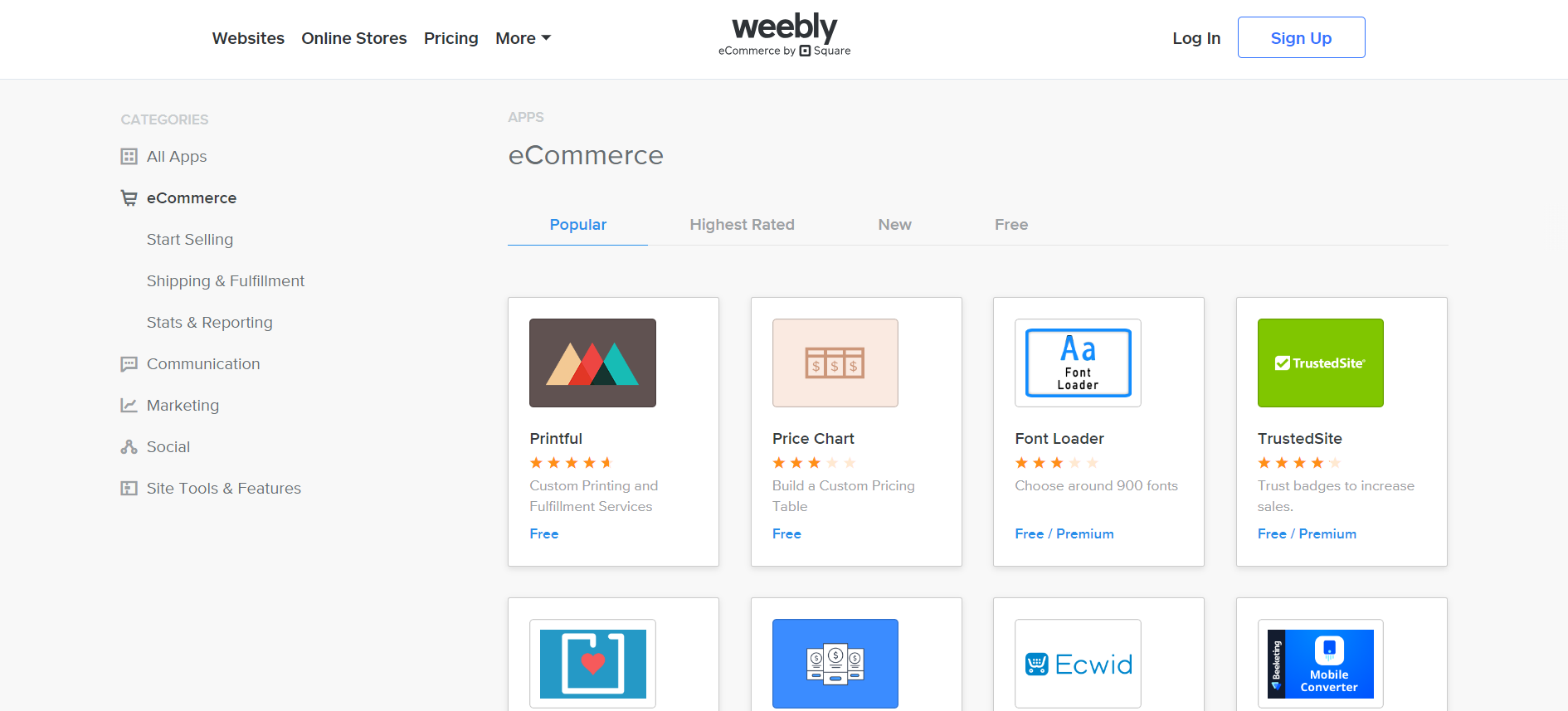
Marketing Features
Design FunctionalitiesRepresents how well each platform allows for creative design and customization of websites.Score Components:
- Template Variety (30%): Range and quality of design templates.
- Customization (30%): Flexibility and options for design alterations.
- User Interface (20%): Ease and intuitiveness of the design process.
- Responsiveness (10%): Adaptability to different devices and screen sizes.
- Innovation (10%): Unique design features and tools.
 7.1
7.1
 5.7
5.7
🏆
Overall Winner: Weebly
. Weebly stands out for its comprehensive set of marketing tools, including SEO, email marketing, blogging, social media integration, analytics and reporting, and ads and promotions. SubHub, while offering a similar set of features, lacks in social media integration and has a lower overall score.

|

|
|
|---|---|---|
|
SEO Tools |
|
|
|
Email Marketing |
|
|
|
Blogging |
|
|
|
Social Media Integration |
Easy link to social media accounts and share buttons |
No |
|
Analytics and Reporting |
Built-in analytics for tracking site performance |
Yes |
|
Ads and Promotions |
Integrated marketing tools for creating and managing ads |
Yes |
Customer Support
Customer supportEvaluates the quality and availability of support options.Score Components:
- Response time (40%): Speed of support responses.
- Support quality (30%): Effectiveness and helpfulness of the support.
- Availability (20%): Range of support channels (phone, chat, email).
- Resource richness (10%): Quality of self-help and educational materials.
 7.3
7.3
 6.3
6.3
🏆 Winner: Weebly
. In the Weebly vs SubHub comparison, Weebly takes the lead with a more comprehensive support system. Weebly offers a variety of support options, including an extensive Online Help Center, Community Forum, Email Support, Live Chat during limited hours, and Phone Support for Pro and Business plan users. This multi-faceted approach ensures that users have access to the help they need, whenever they need it.
SubHub, on the other hand, provides customer support primarily through email and a support portal for detailed queries. While it also offers an FAQ section for immediate answers, it lacks the breadth of support channels that Weebly provides. This makes Weebly a more robust option for users seeking extensive and accessible customer support.
Security
SecurityLooks at the platforms’ security measures and data protection.Score Components:
- Data protection (40%): Safeguards for user and customer data.
- SSL and encryption (30%): Implementation of secure connections.
- Compliance (20%): Adherence to industry security standards.
- Regular updates (10%): Frequency of security updates and patches.
 8.3
8.3
 4.0
4.0
🏆
Winner: Weebly
. Weebly takes the lead in security with a score of 8.3, compared to SubHub’s 4.0. Weebly’s commitment to data privacy and security is evident in its robust measures, including secure data centers, encryption, access controls, and regular backups. Users also benefit from strong password security, two-factor authentication, and the ability to manage their personal data.
SubHub, while emphasizing compliance with GDPR and CCPA regulations in its privacy policy, does not provide any specific information about the website security measures it provides. This lack of transparency could be a concern for users prioritizing security.
AI Capabilities
AI capabilitiesMeasures the effectiveness of AI-driven features and tools.Score Components:
- Automation efficiency (40%): Impact of AI on streamlining processes.
- Personalization (30%): AI-driven customization for users or customers.
- AI-Assisted design (20%): Role of AI in website design and functionality.
- Data analysis (10%): Use of AI in interpreting user data and analytics.
 1.8
1.8
 0
0

|

|
|
|---|---|---|
|
AI Builder |
|
|
|
AI Ecommerce features |
|
|
|
AI content generation |
Possible through third-party integrations |
|
|
Additional AI features |
Possible through third-party integrations |
|
🏆 Winner: Weebly
. Although Weebly does not have native AI capabilities, it allows for the integration of third-party AI-powered plugins, which can enhance the website building and content creation process. This gives Weebly an edge over SubHub, which does not offer any AI capabilities.
User Management
User ManagementAssesses the platforms’ capabilities in managing user roles, permissions, and accessibility.Score Components:
- Role Customization (40%): Flexibility in creating and defining user roles and
permissions. - Ease of Management (30%): User interface and tools for managing users.
- Access Control (20%): Effectiveness of access control measures for different user
levels. - Scalability (10%): Ability to manage a growing number of users efficiently.
 6.5
6.5
 5.2
5.2
🏆 Winner: Weebly
. Both Weebly and SubHub offer different user management capabilities.
- Weebly allows the number of users to edit a website based on the plan selected. The Free Plan allows only one user, the Personal Plan accommodates two users, the Professional Plan permits up to 10 users, and the Business Plan offers unlimited user access.
- SubHub allows multiple user accounts, but does not specify the number of accounts supported.
Weebly User Roles and Access Levels:
| Role | Description | Access Highlights |
|---|---|---|
| Owner | The primary account holder and creator of the Weebly site. | Full access to all site features, including design, pages, settings, store management, and analytics. |
| Admin | Users granted significant control over the site by the Owner. | Can edit and publish site content, manage store orders, view analytics, and access most site settings, except for site ownership transfer and account deletion. |
| Author | Users with limited permissions, typically focused on content creation. | Can create and edit blog posts, manage comments, and sometimes edit specific pages if granted permission. |
| Store Manager | Specifically focused on e-commerce aspects of the site. | Access to manage and fulfill orders, view store analytics, and edit product details, but cannot change site design or settings. |
SubHub User Roles and Access Levels:
| Role | Description | Access Highlights |
|---|---|---|
| Administrator | Full access to the platform except for Homepage and Course Editor. | Can manage all aspects of the platform, including content, store, and member management. |
| Content Management | Focuses on managing and organizing content within the platform. | Can access and manage content-related features but does not have access to Homepage or Course Editor. |
| Store (access only) | Specializes in handling the platform’s store features. | Limited to store management functions; no access to Homepage, Course Editor, or member management. |
| Member Manager (access only) | Oversees member accounts, roles, and subscriptions. | Can manage members and their subscriptions but cannot access Homepage, Course Editor, or store management. |
| Origin Admin Email | The initial administrator with the highest level of access, including Homepage and Course Editor. | Exclusive access to Homepage and Course Editor, on top of what the Administrator role provides. |
Additional Features

|

|
|
|---|---|---|
|
SSL Certificate |
|
|
|
Custom Domain |
|
|
|
Free Custom Domain Included |
|
|
|
International Domains |
|
|
|
Mobile Responsive |
|
|
|
Page Speed |
|
|
|
Website Builder Mobile App |
|
|
|
Convert a Website To An App |
|
|
|
Website Analytics |
|
|
|
Multilingual Sites |
|
|
|
Multiple Users |
|
|
User Feedback
Square Online (formerly Weebly) receives positive reviews for its user-friendly drag-and-drop interface and quick website development features, making it suitable for small businesses. Users highlight its role in efficient appointment booking, saving time in coordination and scheduling. However, some express a desire for more advanced building tools and better pricing. The platform is recognized for streamlining website and payment operations, though opinions on customer service and design limitations are mixed. Overall, it is considered a good, affordable solution for small businesses.
User feedback on SubHub presents a mix of positive and negative experiences, emphasizing the platform’s feature-rich environment and customizable templates. Users appreciate the flexibility and the quality of customer service, highlighting the platform’s continual updates and support as key benefits. However, some users express dissatisfaction with aspects such as the platform’s interface, lack of community features, and service fees for ticket resale. Concerns were also raised about the custom design service and mobile-friendly solutions taking longer than expected.
The making of this blog
We followed a clear, step-by-step process to write and research this article.
FAQ
Which platform is better for building a membership site, Weebly or SubHub?
Can I use Weebly and SubHub for ecommerce?
How do Weebly and SubHub compare in terms of ease of use?
What are the main differences in pricing between Weebly and SubHub?
Which platform offers better customer support, Weebly or SubHub?
Are Weebly and SubHub suitable for beginners without technical skills?










